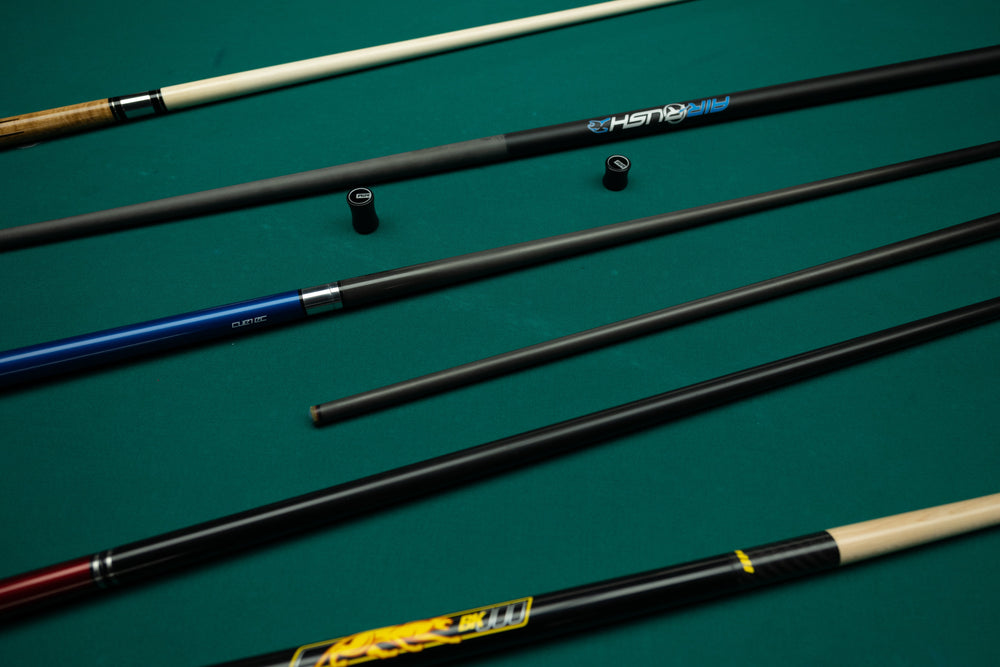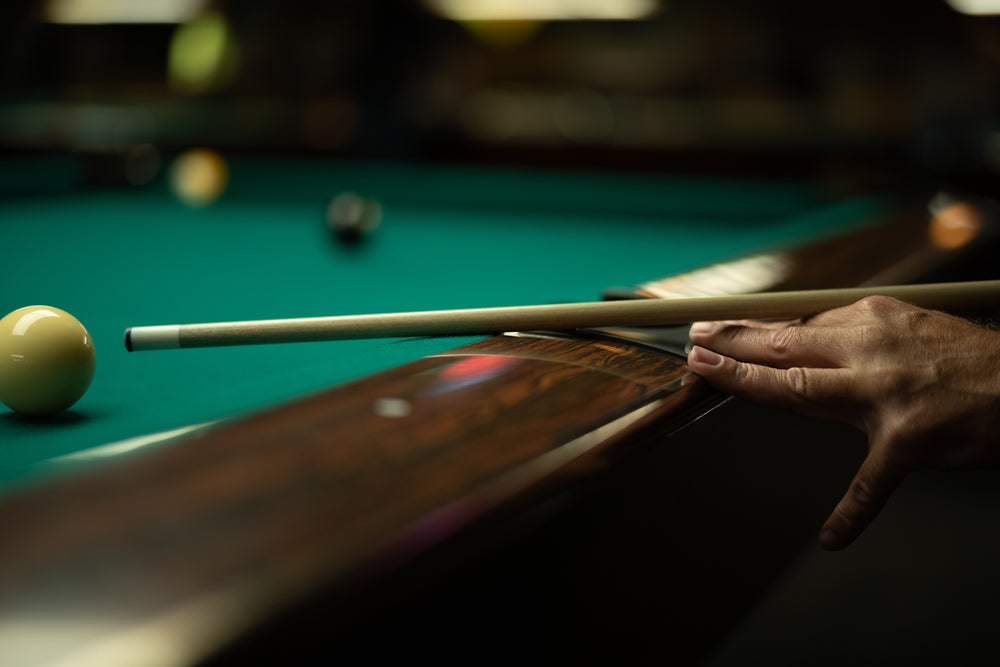When it comes to playing pool, the cue you use can make a significant difference in your performance. Whether you're just starting out or have been playing for years, finding the right cue for your skill level and budget is essential. This guide explores what makes a quality pool cue and how to match the cue to your needs, while keeping your pool table in mind.
Understanding Pool Cues and Their Components
Before choosing a cue, it's important to understand its parts and how they affect your game.
What Is a Pool Cue?
A pool cue is the stick used to strike the cue ball during a game of pool. It consists of several parts, each contributing to its performance:
- Tip: Usually made of leather, it’s the only part of the cue that contacts the ball.
- Ferrule: Sits just below the tip and provides structural support.
- Shaft: The top section of the cue, usually made of maple.
- Joint: Where the shaft connects to the butt.
- Butt: The lower part of the cue, often decorated and weighted.
- Wrap: Offers grip, often made of linen or leather.
Knowing how these parts work together can help you make an informed decision when purchasing.

Matching Pool Cues to Skill Levels
Not all cues are suitable for every player. Beginners, intermediate players, and professionals each have different needs.
Best Cues for Beginners
If you're new to the game, focus on cues that are durable and easy to control. Here’s what to look for:
- A standard weight between 19 to 20 ounces
- A cue length of around 57 to 58 inches
- A medium-hard tip for balance between control and power
Beginners don’t need high-end features. Instead, opt for cues that provide reliability and comfort to help develop your technique.
Best Cues for Intermediate Players
Once you've built some experience, consider cues with better precision and materials. Players at this level benefit from:
- Low-deflection shafts that help control cue ball movement
- Customizable weights for better balance
- Improved tip quality for spin and control
This is a good time to explore cues with specific features tailored to your playing style.
Best Cues for Advanced Players
Experienced players typically prefer cues that allow for high levels of customization and performance. These may include:
- Specialized shafts made from carbon fiber or laminated wood
- Enhanced grip and joint technology
- Ability to switch out parts for maintenance or performance adjustments
While advanced cues often come at a higher price point, they offer significant improvements in consistency and feel.

How to Choose a Pool Cue Based on Budget
Price is a key consideration for most buyers. Here’s a breakdown of what to expect at different price points.
Cues Under $100
These cues are typically made of basic hardwood and offer essential features. They’re suitable for casual or recreational play but may lack precision.
Cues Between $100–$300
In this range, you'll find options with better construction, improved balance, and features like low-deflection shafts. Many intermediate players find cues in this range to be ideal.
Cues Over $300
High-end cues offer professional-level performance with advanced materials and customizable options. Players who compete or play frequently benefit most from these.
When choosing, consider how often you play and what you want to achieve. Spending more may be worthwhile if you play regularly or are focused on improving.
Considerations When Choosing a Pool Cue
Selecting a cue involves more than just price and skill level. Several other factors influence performance.
Cue Weight
Most cues range from 18 to 21 ounces. Heavier cues offer more power, while lighter cues allow for greater control. Choose a weight that complements your play style.
Cue Length
Standard cues are 58 inches, but shorter options are available for smaller players or tighter spaces. Make sure the cue matches your height and the room size around your pool table.
Tip Hardness
Tip hardness affects how the cue interacts with the ball. Soft tips provide more spin but wear faster. Hard tips last longer but can reduce cue ball control.
Shaft Material
Most shafts are made of maple wood, but composite and carbon fiber shafts are growing in popularity for their low-deflection and durability.

Choosing a Cue for Your Pool Table Setup
The space around your pool table should influence your cue choice. A crowded room may require shorter cues or custom sizes. Measure the clearance around the table and factor it into your selection.
Also, consider how the cue interacts with your table's felt and bumpers. A cue that allows for better control and precision can reduce table wear over time.
Top Brands Worth Considering
When looking to find the best pool cues for every skill level and budget, brand reputation can help guide your purchase. Here are a few to consider:
- Players: Known for affordability and reliability.
- Viking: Offers solid performance and durability.
- Predator: Specializes in high-end cues with advanced technology.
- McDermott: Features handcrafted cues with excellent balance and design.
Choosing a reputable brand increases the likelihood of getting consistent quality and dependable customer service.
Where to Buy Pool Cues
Cues are available both in-store and online. Shopping in person allows you to test the cue’s feel, while online stores offer a broader selection. Reputable pool and billiard suppliers often provide warranties, detailed specifications, and customer reviews to assist your purchase.
When shopping, make sure the seller offers:
- Clear return policies
- Warranty coverage
- Secure payment options
Maintenance Tips for Your Pool Cue
Owning a quality cue also means maintaining it. Regular maintenance ensures longevity and consistent performance.
- Clean the shaft with a dry cloth after each use.
- Scuff the tip occasionally to retain chalk absorption.
- Store the cue in a case to prevent warping.
- Avoid moisture and extreme temperature changes.
Proper care not only extends the life of your cue but also protects your investment.
Final Thoughts
Finding the best pool cues for every skill level and budget involves understanding your playing needs, the features that matter most, and how your equipment fits with your pool table setup. Whether you're new to the game or an experienced player looking to upgrade, a well-matched cue can improve your performance and enjoyment of the game.
By paying attention to materials, craftsmanship, and compatibility with your playing environment, you can make a confident and informed choice.





